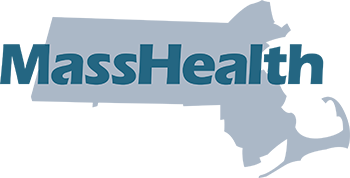After you complete your eligibility application, you may see that you need to send in verification documents, or proof, of information you have submitted. After you submit your application online, you will see an eligibility determination page that shows the programs your household qualifies for, as well as the type of document that you will need to send to the Health Connector as proof. You will also see a list of the different kinds of documents that count as acceptable proof.
In addition to this list available online, each household member will receive a letter in the mail requesting the same verification materials. Depending on which coverage people in your household qualify for, they may receive notices from both the Health Connector or MassHealth. These notices are valid and you will need to respond to each notice in order to complete your application and/or enrollment process.
Where to send eligibility verification documents:
You can either mail or fax a copy of the requested verification document(s) below showing your information. Please follow the instructions in any notice you receive in the mail.
ONLINE
Use the new upload document feature to send your proof. Sign into your account to get started, or find out how this works →
FAX
857-323-8300
Note: This fax is for eligibility verification documents only. If you are sending ID Proofing documents, click here now for information →
MAIL
Health Connector Processing Center
P.O. Box 4404
Taunton, MA 02780
IN-PERSON
Visit a Walk-In Center
BOSTON
133 Portland Street, 1st Floor
Boston, MA 02114
WORCESTER
146 Main Street, Suite 201/202
Worcester, MA 01608
Please do not send original documents. When you send the document(s), you will need to include a copy of the verification document request letter(s) from the Health Connector or MassHealth you received in the mail, and write your name and member ID number on each document that you send.
Verification Document Types
Click a document type below to see the list of acceptable documents to send.
Massachusetts Residency
- Copy of deed and record of most recent mortgage payment (if mortgage is paid in full, provide a copy of property tax bill from the most recent year)
- Copy of lease and record of most recent rent payment
- Mortgage deed showing primary residence
- Nursery school or daycare records (if school is private, additional documentation may be requested)
- Current utility bill or work order dated within the past 60 days
- Statement from a homeless shelter
- School records (if school is private, additional documentation may be requested)
- Section 8 agreement
- Homeowner’s insurance agreement
- Proof of enrollment of custodial dependent in public school
Incarceration Status
- Acceptable proof of incarceration status is a signed affidavit from the applicant or member indicating he/she lives in the community.
Immigration Status
- Permanent Resident Card, “Green Card” (I-551)
- Reentry Permit (I-327)
- Refugee Travel Document (I-571)
- Machine Readable Immigrant Visa (with temporary I-551 language)
- Temporary I-551 Stamp (on Passport or I-94/I-94A)
- Foreign passport
- Arrival/Departure Record (I-94/I-94A)
- Arrival/Departure Record in foreign passport (I-94)
- Certificate of Eligibility for Non-immigrant Student Status (I-20)
- Certificate of Eligibility for Exchange Visitor Status (DS-2019)
- Employment Authorization Card (I-766)
- Notice of Action (I-797)
- Certification from U.S. Department of Health and Human Services (HHS) Office of Refugee Resettlement (ORR)
- Document indicating withholding of removal (or withholding of deportation)
- Administrative order staying removal issued by the Department of Homeland Security
- Document indicating a member of a federally-recognized Indian tribe or American Indian born in Canada
- Office of Refugee Resettlement (ORR) eligibility letter (if under 18)
- Resident of American Samoa Card
- USCIS Acknowledgement of Receipt (I-797C)
- U.S. Visas (such as B1/B2, R-Visa, Border Crossing Card, J/F/M)
American Indian/Alaska Native Status
- Tribal Card
- Document issued by BIA recognizing an individual as American Indian/Alaska Native
- Authentic document from a tribe declaring membership for an individual
- Certificate of Degree of Indian Blood
- Certificate of Indian Status card
- I-872 American Indian Card
- Document issued by IHS indicating individual is/was eligible for IHS services as an American Indian/Alaska Native
- U.S. American Indian/Alaska Native tribal enrollment documentation
- Document that shows a relationship to an individual listed on an Indian Census Roll
Social Security Number (SSN)
- SSN Card
- Benefit or income statement from Social Security containing your SSN
- Pending application for an SSN
- Letter from Social Security stating that you’re not eligible for an SSN or are only eligible for a non-work SSN
- Letter stating that you refuse to obtain an SSN for established religious objections
- Tax form(s)
U.S. Citizenship Status
- U.S. passport, including a U.S. Passport Card issued by the Department of State, without regarding to any expiration date as long as such passport or Card was issued without limitation
- a Certificate of Naturalization (DHS Form N-550 or N-570); or
- a Certificate of U.S. Citizenship (DHS Form N-560 or N-561); or
- a document issued by a federally recognized American Indian tribe showing membership or enrollment in, or affiliation with, such tribe.
SECOND LEVEL—Proof of U.S. citizenship/national status only
- A U.S. public record of birth (including the 50 states, the District of Columbia, Puerto Rico (on or after January 13, 1941), Guam (on or after April 10, 1899), the U.S. Virgin Islands (on or after January 17,1917), American Samoa, Swain’s Island, or the Northern Mariana Islands (after November 4, 1986). The individual may also be collectively naturalized under federal regulations. The birth record must have been recorded within 5 years of birth.
- A Report of Birth Abroad of a U.S. Citizen (Form FS-545, Form FS-240, or Form DS-1350)
- A U.S. Citizen ID card (INS Form I-197 or I-179)
- An American Indian Card (I-872 with the classification code KIC) issued by the Department of Homeland Security (DHS) to identify U.S. citizen members of the Texas Band of Kickapoos living near the U.S./Mexican border
- Final adoption decree showing the child’s name and U.S. place of birth (if adoption is not finalized, a statement from a state-approved adoption agency)
- Evidence of U.S. civil service employment before June 1, 1976
- An official military record showing a U.S. place of birth
- A Northern Mariana Identification Card (I-873) issued by the INS to a collectively naturalized citizen of the United States who was born in the Northern Mariana Islands before November 4, 1986
- Documentary evidence under the Child Citizenship Act for adopted children born outside the U.S.
THIRD-LEVEL—May be accepted as proof of U.S. citizenship/national status only
- Extract of U.S. hospital record of birth on hospital letterhead established at the time of the person’s birth that was created 5 years before the initial application date and that indicates a U.S. place of birth. For children under age 16, the hospital record must have been created near the time of birth or 5 years before the application date. A souvenir birth certificate is not acceptable.
- Life, health, or other insurance record showing a U.S. place of birth that was created at least 5 years before the initial application date that indicates a U.S. place of birth. For children under age 16, the document must have been created near the time of birth or 5 years before the application date.
- An official religious record recorded with the religious organization in the U.S. within 3 months of birth showing the birth occurred in the U.S. and showing either the date of birth or the individual’s age at the time the record was made. Entries in a family bible are not considered religious records.
- An early school record showing the child’s name, U.S. place of birth, date of admission, and date of birth
FOURTH-LEVEL —May be accepted as proof of U.S. citizenship/national status only
- Birth records recorded after the person turned age 5
- Federal or state census record showing U.S. citizenship or a U.S. place of birth and person’s age
- Admission papers from a nursing home, skilled-care facility, or other institution that were created at least 5 years before the initial application date and that indicate a U.S. place of birth
- Medical (clinic, doctor, or hospital) record indicating a U.S. place of birth that was created at least 5 years before the initial application date. For children under age 16, the medical record must have been created near the time of birth or 5 years before the application date.
- Other documents that show a U.S. place of birth that were created at least 5 years before the application for MassHealth (For children under age 16, the document must have been created near the time of birth or 5 years before the application date.): Seneca or Navajo Indian tribal census records, U.S. State Vital Statistics official notification of birth registration, an amended U.S. public birth record that was amended more than 5 years after the person’s birth, a statement from a physician/midwife who was in attendance at the birth, or the Bureau of Indian Affairs Roll of Alaska Natives
- if an individual does not have one of the documents listed above, he or she may submit an affidavit signed by another individual, under penalty of perjury, who can reasonably attest to the individual’s citizenship, and that contains the individual’s name, date of birth, and place of U.S. birth. The affidavit does not have to be notarized.
Income
Proof of Income
Acceptable proof of income includes the following:
Proof of Job Income
Please send us one of the following showing gross pay and deductions and the number of hours worked per pay period:
- Recent pay stubs dated within the past 60 days
- Your most recent Form 1040 (U.S. Individual Income Tax Return) with all attachments, including W2s. This must not be older than the most recent tax year.
- A signed earnings statement from your employer
- If you are seasonally employed, any of the proofs above, including information about the duration of your employment
- Military Leave and Earnings statement
- Agricultural income certificate
Proof of Self-Employment Income
- 1040 SE with Schedule C, F, or SE (for self-employment income)
- 1099-MISC or 1099-NEC and your most recent Form 1040 (U.S. Individual Income Tax Return) with all attachments
- Self-employment ledger
- Bookkeeping records
- Signed and dated most recent quarterly or year-to-date profit and loss statement
If an individual does not have one of the documents listed above, use the Verification of Self-Employment Income form, below, as proof of income for self-employment
You may use the form if:
- you do not have formalized, current documentation of your self-employment, or
- you engage in gig work (rideshare, food delivery, etc.) and do not have a bookkeeper
Descarga la Verificación de ingresos de empleo por cuenta propia en español (PDF)
Proof of Other Income
Acceptable proof of “other” income (income not earned from a job) includes the following:
- Cost of living adjustment letter and other benefit verification notices
- Lease Agreement
- Bank or investment fund statement
- Document or letter from Social Security Administration (SSA)
- Form SSA 1099 Social Security benefits statement
- Recent court records for alimony and records of agency through which alimony is paid
- Recent legal documents that establish the amount and frequency of alimony
- Letter from a government agency for unemployment benefits
- Proof of tribal income
- 1099-G and your most recent Form 1040 (U.S. Individual Income Tax Return) with all attachments
- Military Leave and Earnings statement
- Proof of gambling winnings
- Annuity statement
- Statement of pension distribution from any government or private source
- Recent prizes, settlements, and awards, including court-ordered awards letter
- Proof of gifts and contributions
- Proof of inheritances in cash or property
- Proof of strike pay and other benefits from unions
- Sales receipts or other proof of money received from the sale, exchange, or replacement of things you own
- Interests and dividends income statement
- Loan statement showing loan proceeds
- Royalty income statement or 1099-MISC or 1099-NEC and most recent Form 1040 (U.S. Individual Income Tax Return) with all attachments
- Proof of bonus/incentive payments
- Proof of severance pay
- Pay stub indicating sick pay
- Letter, deposit, or other proof of deferred compensation payments
- Pay stub indicating substitute/assistant pay
- Pay stub indicating vacation pay
- Proof of residuals
- Letter, deposit, or other proof of travel/business reimbursement pay
Attestation Form to Verify Income
Fill out the Attestation Form to Verify Income, below, if you cannot provide the documentation needed to verify your income. You should always try to provide formal documentation if you can. This form will be accepted if an individual has made a good-faith effort to get income documentation but cannot due to the examples below.
You may use this form if:
- getting the needed documentation poses a safety risk to you,
- accessing the document is impossible due to circumstances outside of your control, or
- you have sent documentation that has repeatedly been rejected and you have no other acceptable proof of this type of income
Download the Attestation Form to Verify Income in English (PDF)
Descargue el Formulario de declaración para verificar ingresos en español (PDF)
Proof that You Have No Income
If an individual is not currently working and was asked to submit proof that they have no income, they may submit a signed written statement (also called an “affidavit”). The affidavit needs to state that they do not have any income and must be signed under penalty of perjury. This means that the signer could be guilty of the crime of perjury if the statement is shown to be false. The affidavit does not have to be notarized.
You may choose to use the “Affidavit to Verify Zero Income” form as your statement. You can download this form below. You can also call Health Connector Customer Service at 1-877-623-6765. TTY: 711 to request a paper copy of this form.
Other Minimum Essential Coverage (MEC)
- Completed Employer Coverage Tool and a cover letter signed by the employer
- Letter or other documentation from an employer or other documentation with this information:
- The dates that the employee (or employee’s family member) is eligible for employer coverage (if applicable),
and - Attestation that the employer doesn’t offer coverage to the employee (or the employee’s family member),
or - Attestation that the employer doesn’t provide coverage that meets the minimum value standard,
or - If the employer offers a plan to the employee that meets the minimum value standard, the cost of the employee’s share of the premium for the lowest-cost self only plan that meets the minimum value standard (factoring in wellness incentives)
- The dates that the employee (or employee’s family member) is eligible for employer coverage (if applicable),
No Minimum Essential Coverage (MEC)
- Letter from health insurer including coverage termination date
- Statement of health benefits
- Letter from Veterans Administration
- Letter from Peace Corps
- Letter or statement of Medicare benefits
- Letter or statement of Medicaid benefits
- Letter or statement of Children’s Health Insurance Program (CHIP) benefits
Have you already sent your required documents?
If you have already sent in your verification documents and want to know the status, both the Health Connector and MassHealth are starting to process verification documents and you will receive a notice once your documentation has been approved or if additional information is needed. There is nothing else you need to do at this time. You will remain enrolled in your current coverage as long as you continue to pay your monthly premium (if applicable) on time.
Questions and Answers
- If the information in your document(s) is compatible with what you entered, then no more action will be needed.
- If the information in your document(s) is different than what you entered, then your eligibility application may need to be updated.
- If the information in your document(s) cannot be used as proof, for example, the wrong document type or an expired document, then we will not be able to use those documents to verify.
- If the information in your document(s) cannot be read (for example, a poor quality photocopy), then we will not be able to use those documents to verify. Please always be sure to send a clear copy.
If you qualify for MassHealth coverage, like MassHealth Standard or CarePlus, you may be enrolled automatically and will receive a package in the mail with more information about your coverage.
If you applied online here at MAhealthconnbector.org, you can log into your account to see what you may owe for documents. If you do not have access to your online account, you can call Health Connector or MassHealth customer service to set up an account login for you.
After you login to your account,
- Click on “My Eligibility.”
- Then, under 2025 Application actions, click the “Detail” link. This will take you to your “Eligibility Results” page where you can see which type of document(s) you need to send.
In addition to this list available online, each household member will receive a letter in the mail requesting the same verification materials. Depending on which coverage people in your household qualify for, they may receive notices from both the Health Connector and MassHealth requesting the same information. These notices are valid and you will need to respond to each notice in order to complete your application and/or enrollment process.
If you have already sent in your verification documents and want to know the status, you will receive a notice once your documentation has been approved or if additional information is needed. There is nothing else you need to do until your documents are processed which can take up to several weeks. You will remain enrolled in your current coverage as long as you continue to pay your monthly premium (if applicable) on time.
- Example 1: If you are enrolled in a Health Connector plan with no help paying for costs and send in income verification documents and your income is determined to be much lower than what you reported when you applied, this could mean that you may now be eligible for an Advance Premium Tax Credit to help lower the cost of your monthly premium.
- Example 2: If you are enrolled in a ConnectorCare plan and send proof of residency that is at a different address than you reported, then your plan may not be available in that area (out of plan network). You may have to shop for a new plan with a network in that area.






